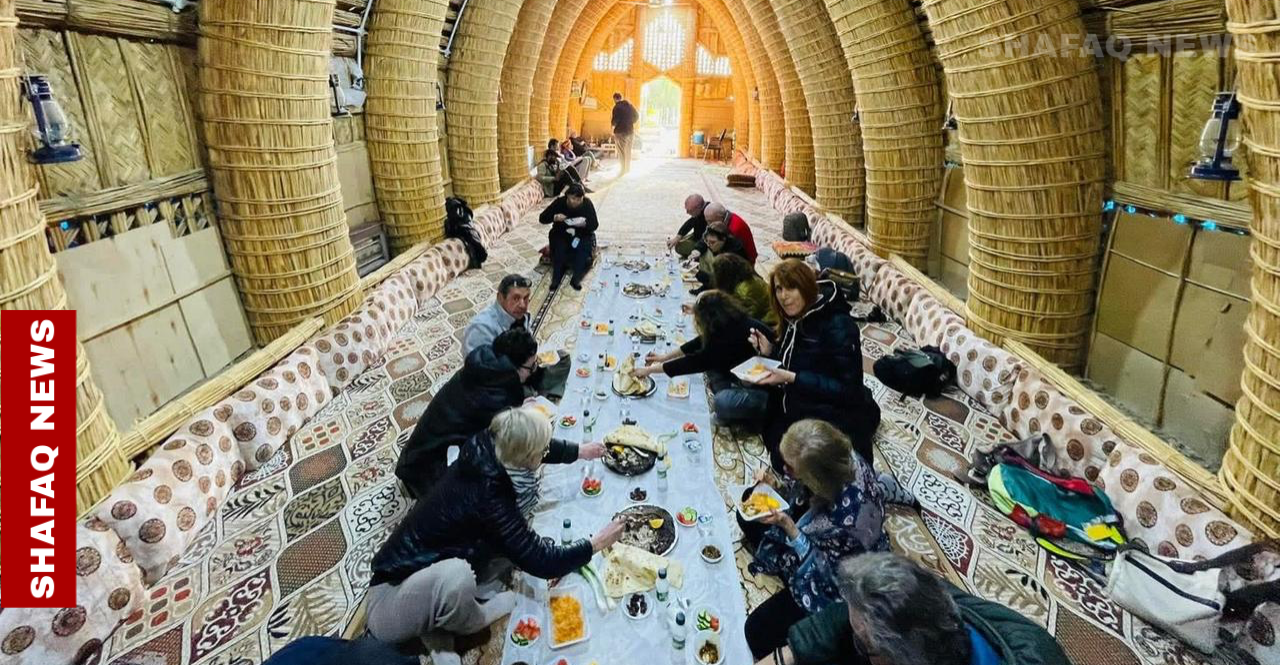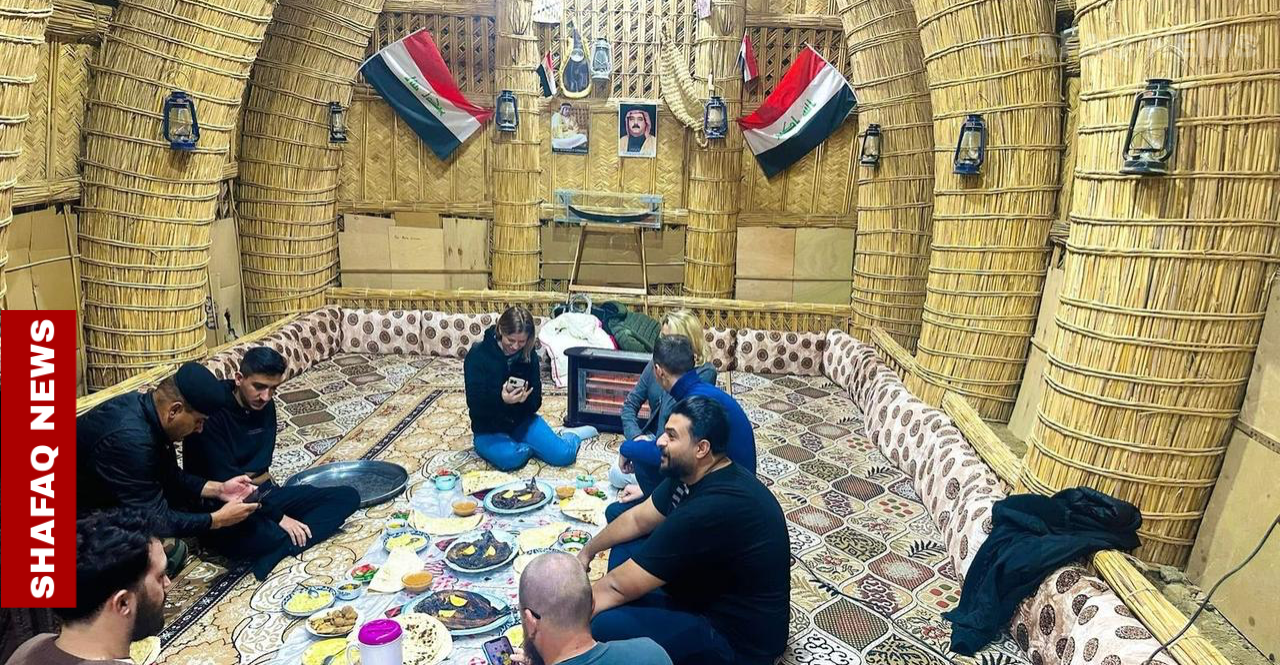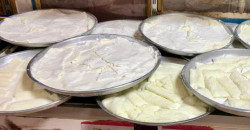From clay tablets to modern tables: Iraq's timeless cuisine
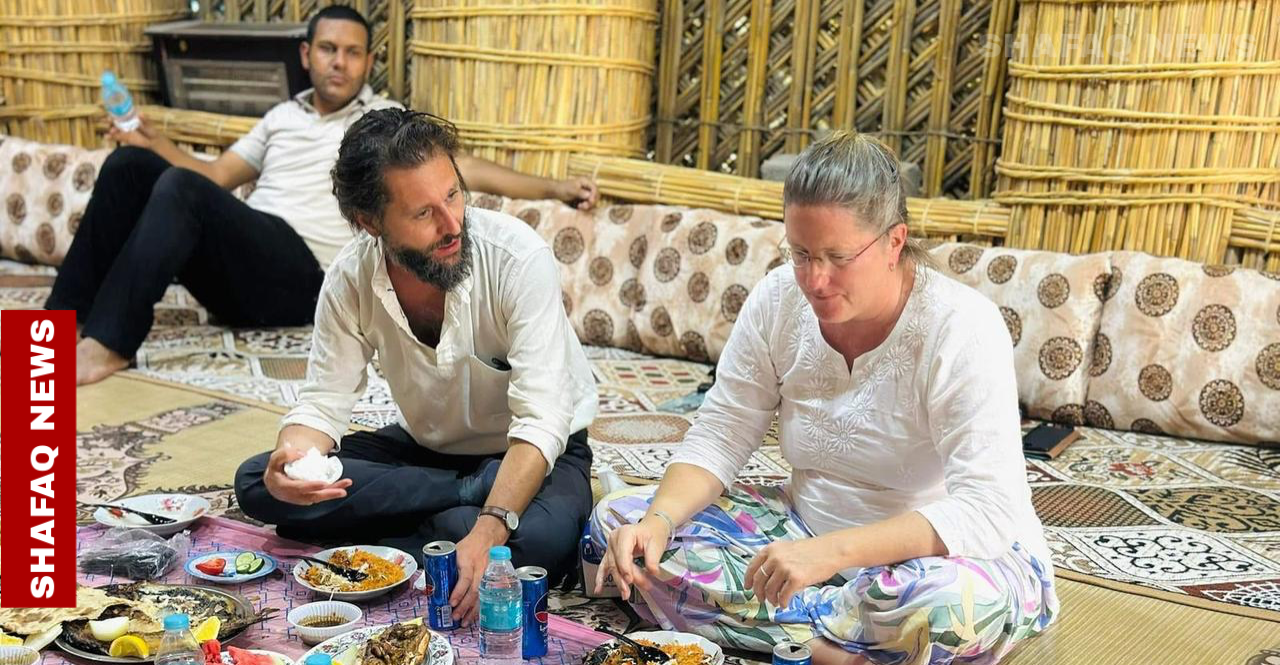
Shafaq News/ Iraqi cuisine is a reflection of the country’s rich history and deep-rooted traditions, offering more than just nourishment—it embodies culture and hospitality. From the smoky aroma of Masgouf grilling along the Tigris to the delicate sweetness of date-filled pastries, every dish tells a story.
Bustling markets overflow with the scent of
spices, while family tables are filled with slow-cooked stews, fragrant rice,
and freshly baked bread, making Iraqi cuisine an experience of warmth,
generosity, and heritage.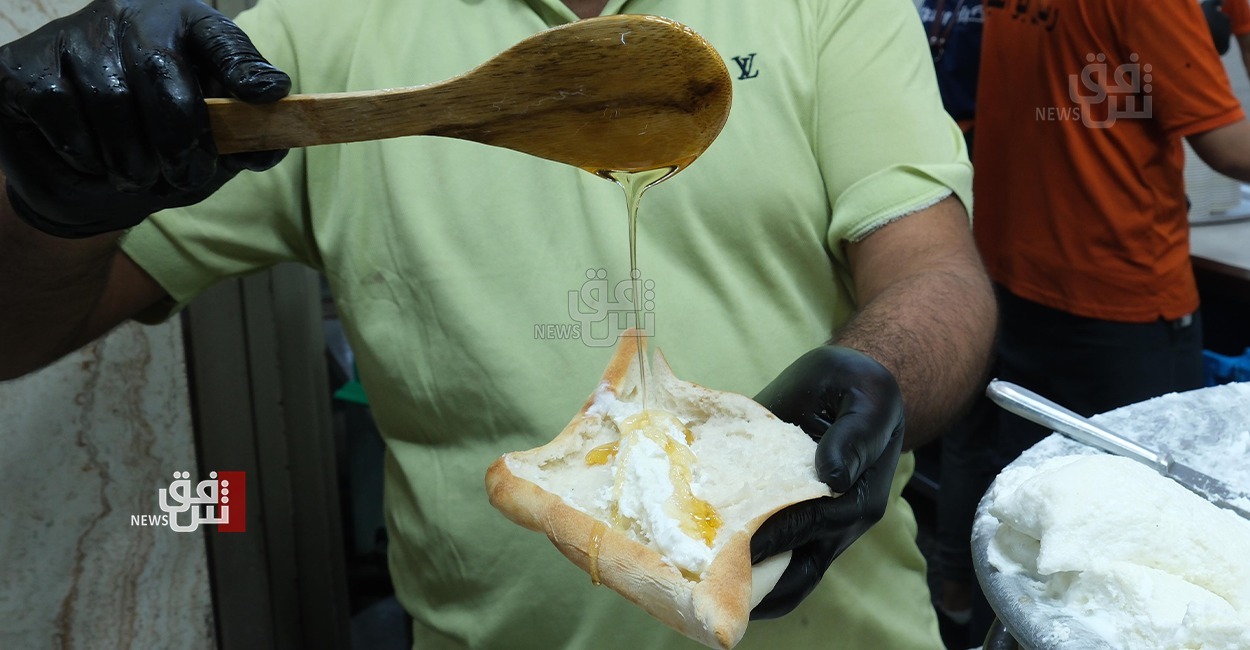
A Multi-Layered Taste
For Palestinian media professor Lubna Al-Ashqar, a visit to Iraq was as much about flavors as it was about landscapes. “There are similarities between Iraqi and Palestinian cuisine,” she reflects, “but the distinct spices and ingredients here truly stand out. The richness and depth of the dishes are unique.”
Iraqi cuisine is known for bold flavors, slow-cooked stews, and generous portions. Al-Ashqar immersed herself in classics like Kebabs, Masgouf, and Pacha, a slow-cooked sheep delicacy, alongside Tashreeb, where chunks of bread soak up a fragrant broth.
Yet, Iraq’s sweets left the strongest impression. “I couldn’t resist taking some home,” she says with a smile. “Iraqi baklava is unlike any other, perfectly balanced between sweetness and crunch.”
Journalist Khaloud Al-Amiri, who has guided numerous foreign guests, shares a few must-try dishes: “Dolma, Biryani, Siyaḥa (broad beans with eggs), Geymar Arab, Lamb Tashreeb, Kebabs, and grilled fish are always a hit.”
Breakfast is where many visitors first fall in love with Iraqi cuisine. Kathrin Ioannis recalls tasting Geymar Arab, a creamy dairy treat served with honey and flaky Kahi pastries. “I was hooked from the first bite,” she says. “The honey’s sweetness complementing the rich cream felt like a warm hug on a plate.”
But the real magic came later, by the Tigris, where the smoky scent of Masgouf mingled with the evening breeze, making the experience unforgettable. “This is like nothing I’ve ever had,” she says, clearly impressed by the rich flavors. “The combination of smoke and spices is incredible.”
Iraq’s iconic dishes continue to captivate travelers. The beloved Biryani, distinct from its South Asian counterpart, is a fragrant rice dish studded with nuts, raisins, and spices. “Iraqi Biryani is a celebration of texture and flavor,” says Baghdad-based chef Mustafa Hassan. “The nuts and raisins add a sweetness that balances the spiciness of the rice, making it a complex yet comforting dish.”
Iraq’s beverages add another layer to the experience. British traveler Michael Thompson recalls his first taste of Chai Iraqi, brewed with cardamom and served in small glass cups. “The deep, spiced flavor was unlike any tea I had before,” he reflects. Often brewed over a samovar, Iraqi Chai is a daily ritual that fosters conversation and connection. Another favorite is Laban, a chilled yogurt-based drink that offers a refreshing respite from Iraq’s sweltering summers.
Rooted in Ancient Traditions
Iraqi cuisine traces its origins back to ancient civilizations like the Sumerians, Babylonians, and Assyrians. The earliest known recipes, preserved on clay tablets from 1750 BC, describe stews, roasted meats, and bread-making techniques still in use today.
Folklore researcher Dr. Mahdi Munther explains, “Many of Iraq’s beloved dishes have roots in these civilizations. Iraqi cuisine stands as a testament to resilience, cultural exchange, and time-honored traditions.”
One of Iraq’s oldest dishes, Habeeṭ, dates back to the Sumerians, who cooked it in large clay pots over open fires. A symbol of hospitality, it was served at daily meals and grand feasts alike. “Habeeṭ is not just food, it’s a dish that tells stories of family, community, and history,” notes Dr. Munther.
During the Ottoman period, Dolma, stuffed vegetables with rice, meat, and herbs, became a staple in Iraq, evolving with local ingredients. Baghdad-born food historian Layla Jamil explains, “Iraq’s Dolma is unique. The use of fresh herbs and vine leaves from Mesopotamia’s fertile plains creates a distinct flavor that sets it apart.”
Once the centerpiece of royal Abbasid feasts, Quzi, a whole lamb slow-roasted with rice, nuts, and spices, symbolizes Iraq’s culinary mastery. “We serve Quzi at large gatherings and weddings,” shares Iraqi chef Amira Al-Khansaa. “It’s a dish of abundance, bringing people together in celebration.”
Kubba, crispy bulgur dumplings filled with
spiced meat, traces its origins back to ancient Babylon. Over time, it
transitioned from a royal delicacy to an Iraqi street food staple. “Walking
through Baghdad, you’ll see people enjoying it everywhere,” says food vendor
Mahmoud Al-Saleh. “It’s a dish that connects the past with the present.”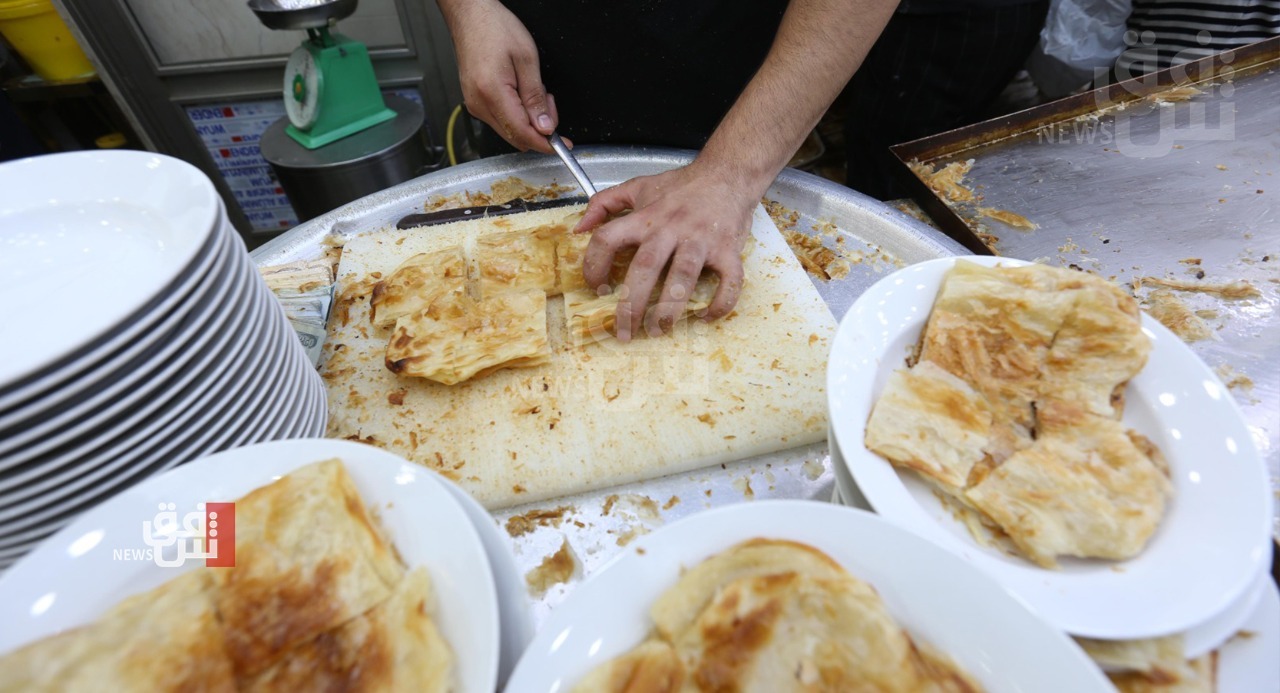
Hospitality Beyond the Meal
Meals in Iraq are about more than nourishment, they are moments of connection, storytelling, and warmth. Visitors are often surprised by the generosity of their hosts, who insist on serving more even when guests are full.
During Ramadan, the tradition of Iftar extends beyond families to entire communities. American tourist Richard Hall, visiting Iraq during Ramadan, recalls, “I was walking in Baghdad when a family invited me to their table. They didn’t know me, but they welcomed me without hesitation. It was more than a meal, it was an embrace.”
Tea is another cornerstone of Iraqi hospitality. Served in small glass cups, it is accompanied by sweets like Baklava or Kahi pastries. “Drinking tea in Iraq isn’t just about the drink,” says American traveler Ethan Scott. “It’s about conversation, relationships, and community.”
Even beyond the home, this generosity is evident. Shopkeepers often offer customers extra treats, whether fruit, spices, or fresh bread. A 2023 study on Middle Eastern hospitality highlights Iraq as one of the region’s most welcoming destinations, where visitors leave not just well-fed but deeply moved by the warmth they encounter.
